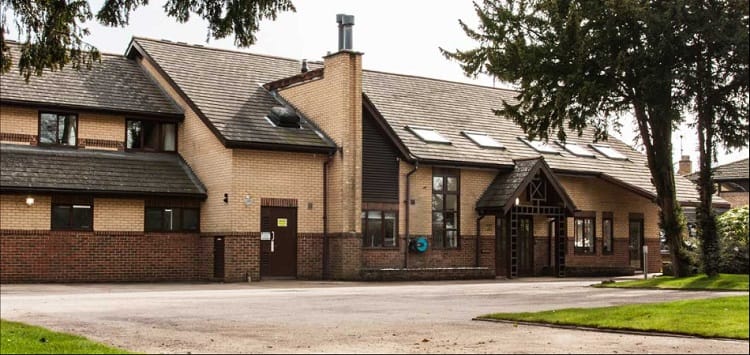Oxford is a town located in Oxfordshire, England. It has a population of 162,035.
Most known for its university, Oxford is often described as idyllic.
However, like most towns in the UK, Oxford is also home to those struggling with alcohol abuse and drug addiction.
According to the latest data, there are estimated to be 3,416 opiate and crack users (OCUs) and 3,257 adults (15–64) with alcohol dependency in Oxfordshire.
Both cocaine and cannabis are also prevalent, with cannabis being the second most used substance after alcohol.
For more information about drug and alcohol use in Oxford and near Oxford, please see here.
This article will serve as a useful guide for those based in Oxford and suffering from drug or alcohol dependency.
It will discuss the available alcohol and drug addiction treatment options, how much treatment fees cost, and precisely what to expect.
Get the help you need from a drug and alcohol rehab centre in Oxford and near Oxford by calling our team today on 0800 140 4690
If you or a loved one are experiencing alcohol withdrawal symptoms such as Delirium tremens (DTs), then call 999 as this is considered a medical emergency. You can read about the symptoms of Delirium tremens here.
Rehabs in Oxford and near Oxford offer help and support for a range of conditions, not limited to substance misuse or alcohol misuse.
For instance, you can also receive help for eating disorders (such as anorexia nervosa and bulimia nervosa) and other behavioural addictions, such as problem gambling and video game addiction.
For substance and alcohol misuse, treatment typically begins with drug detoxification and then transitions into the drug rehabilitation phase followed by an extensive aftercare plan.

There are many excellent and free addiction services located in Oxford and near Oxford. According to research, the most prominent of these is Turning Point.
Turning Point helps people recover from drug and alcohol dependency by providing a range of free services.
These include:
To learn more about accessing alcohol rehab and drug rehab in Oxford, call our team today on 0800 140 4690

The short answer is no. What the NHS can offer, however, is funding to access residential treatment.
This is accessed through the Oxfordshire council and requires an application that is endorsed by a key worker.
It is advised that people wishing to access funding should speak to their GP.
It should be noted that funding is difficult to obtain and often requires people to meet certain criteria.
This might include:
The wait time for funding can also be long – usually between six months to a year.
Free and NHS-run addiction treatment services available in Oxford, alongside other charity rehabs and non-residential addiction services, include:
Address: 27-29 Rectory Rd, Oxford, OX4 1BU
Telephone: 03000 134 776
Website: http://wellbeing.turning-point.co.uk/oxfordshire
Address: Unit 29, Templars Square Shopping Centre, Oxford, OX4 3XH
Telephone: 07786 557 104
Website: http://adaptoxford.org.uk/
Address: The Straw Bale, Restore, Manzil Way, Cowley Rd, Oxford, OX4 1YH
Telephone: 01865 779 613
Website: http://oxfordshirerecoverycollege.org.uk/
Address: Jubilee House, 5510 John Smith Dr, Oxford Business Park, Oxford OX4 2LH
Telephone: 01865 336 800
Other organisations you can reach out to that offer publicly funded assistance include the Edward Myers Unit, Change Grow Live and We Are With You.
Other organisations that can provide direct advice or support include the National Association for Children of Alcoholics, a local NHS Foundation Trust and the National Institute for Health and Care Excellence.
We are here to help you get the treatment you need. For guidance accessing NHS funding in order to attend an alcohol & drug rehab centre in Oxford, call our team on 0800 140 4690

Alternatively, if affordable, a private rehab centre can be accessed without NHS funding. Unfortunately, private rehab is expensive.
The latest data suggests that, on average, in the UK, rehab treatment fees cost between £300 to £500 per pay.
A luxury rehab centre can be even more expensive, costing upwards of £1,000 per day.
Some health insurance companies, such as BUPA and Aviva, have packages that cover the cost of treatment fees; this might be an option worth exploring.
Usually, such packages cost upwards of £100 per month. Although this is still expensive, it is significantly cheaper than paying for a private rehab centre outright.
To get a clearer idea of how much your stay at a drug & alcohol rehabilitation centre in Oxford will cost, call our team today on 0800 140 4690

All treatment providers we recommend in Oxford offer tailored addiction treatment.
Fortunately, the ‘one size fits all’ model of addiction treatment is now a thing of the past.
To ensure your addiction treatment programme is tailored to your needs, a psychiatrist will carry out a physical and mental assessment before your recovery programme begins.
All psychiatrists we work with are regulated by the Royal College of Psychiatrists.
When formulating a rehab programme, the addiction specialists will take into consideration your age, your sex, your state of health and the severity of your addiction.
Get the best personalised treatment available from a drug and alcohol rehab centre in Oxford by calling us on 0800 140 4690

To determine which particular alcohol or drug addiction treatment is suited to your needs, contact Rehab 4 Addiction for your telephone assessment. When you contact us, we carry out an assessment process.
This assessment allows us to eliminate treatment options that are poorly suited to your needs.
When you first get to a rehab centre or access other sober living houses, you will undergo a psychiatric assessment by qualified recovery nurses or addiction specialists, in order to be diagnosed and receive appropriate treatment. This will be done by a psychiatrist of other medical professional. This will help you on your path to sobriety.
You may also need to have a medically-assisted detox phase – especially for those going through alcohol or heroin withdrawal, or for those who have a physical dependence on a substance, as the symptoms can be very dangerous.
You may be prescribed Chlordiazepoxide for alcohol withdrawal symptoms by an addiction physician.
Long-term consequences of substance abuse and alcohol misuse can include hepatitis, wernicke encephalopathy and more.
Long-term alcohol addiction can result in Wernicke-Korsakoff Syndrome, alcoholic neuropathy, alcohol withdrawal syndrome, alcoholic cerebellar degeneration, alcoholic myopathy and fetal alcohol syndrome.
Alcohol can also have effects like difficulty walking, blurred vision, slurred speech, slowed reaction times and impaired memory.
Consequently, this process of elimination allows us to restrict our recommendations to drug and alcohol addiction treatment clinics that are highly suited to your needs.
The vast majority of people suffering from an addiction to drugs & alcohol will need to spend at least a week in a residential rehab clinic.
This is because a detox programme is usually required. Residential rehabs offer a clinically supervised detox phase.
You may wonder why it is not advisable to undergo a detox programme from home.
The answer to this question is simple. When you undertake detoxification treatments, you are likely to suffer from withdrawal symptoms, such as seizures, hallucinations and nausea.
If your addiction is sufficiently severe, it is likely you could develop life-threatening withdrawal symptoms.
These withdrawal symptoms are easily treated by medical professionals.
Deaths associated with detoxification treatments are entirely avoidable. Therefore, to avoid the risk of death, we do not recommend that you attempt to undergo a drug or alcohol detox phase from home.
The free assessment we offer over the telephone primarily seeks to assess the severity of your addiction.
If you begin to suffer withdrawal symptoms following several hours of abstinence, it is highly likely you will require the services of a residential alcohol or drug rehab facility in Oxford.
Find the best addiction treatment for your needs at a drug & alcohol rehabilitation facility in Oxford – call us today on 0800 140 4690

There are many reasons that a person might not want to seek help for their substance use.
This might include unawareness of the problem, not knowing how to access treatment, a fear of social stigma, or just being unwilling to get help.
For family and friends of loved ones that are substance dependent, this can be frustrating and painful and raises the question: what can we do to help?
One solution that professionals have found to be particularly useful is to organise an intervention.
An intervention is the gathering of family and friends to convince a loved one to seek professional help.
It is a collective effort and is aimed at encouraging the loved one and helping family and friends express their concerns.
There are three main goals of intervention: to convince the loved one that they need help, encourage accountability, and cease enabling behaviour.
Due to the nature of an intervention, it has the potential to be confrontational and can become tense.
It is, therefore, recommended that people employ the help of an interventionist expert – psychologists or addiction specialists, for example.
They will be able to help organise the intervention, act as a mediator, and provide useful tips and information.
In addition, medical professionals have developed tools and methods that might be of assistance.
Get your loved one the help they need from a drug and alcohol rehab centre in Oxford by calling us on 0800 140 4690

One of these is the Community Reinforcement and Family Training (CRAFT) method.
CRAFT was specially designed to help families that have a loved one that is refusing to seek help.
It has three main goals: to convince the loved one to seek help, addiction reduction, and to help families engage in encouraging behaviours.
CRAFT involves families working alongside a professional that will organise and conduct regular meetings and assessments.
During these meetings, families will learn how to:
To learn how to best conduct an intervention in order to convince a loved one to attend alcohol or drug rehab facility in Oxford, call our team on 0800 140 4690

As previously mentioned, some people do not know if an addiction has occurred.
There can be many reasons for this, such as symptoms not being evident or the person not knowing what symptoms to look for.
In addition, symptoms of addiction can vary from substance to substance, with some being more subtle than others.
Probably the most evident sign of addiction is intense cravings for the substance.
These occur when the mind and body need the substance to function properly.
Following this, and without the substance, people will begin to experience withdrawal – this usually manifests itself in nasty symptoms.
These might include headaches, anxiety, restlessness, shakes, and flu-like symptoms – vomiting or stomach issues, for example.
Withdrawal symptoms will be covered in more detail below.
Not sure if you’re in need of a drug and alcohol rehab centre in Oxford? Talk it over with our expert team on 0800 140 4690

Addiction also negatively impacts people’s personalities and behaviours.
People who are substance dependent tend to be more irrational and make questionable decisions – no longer being hygienic, forgoing work, and not engaging with hobbies or social activities.
These are just a few examples, and it is always recommended that people speak with a medical professional where they can be assessed.
Through a medical professional, qualified recovery nurse, addiction physician or other addiciton specialist, tools can be used to determine if addiction has occurred.

An example of such tools is the CAGE (Cutting Down, Annoyance by Criticism, Guilty Feeling, and Eye-openers) questionnaire.
Each letter has a yes/no question that has been specifically designed to uncover addiction.
For alcohol, these questions include:
For drug dependency, these include:
There are also other sources available that can help you decide whether you may have an addiction or not. These include the DSM-5 guidelines, Alcohol Use Disorders Identification Test (AUDIT), and the American Society of Addiction Medicine (ASAM) guidelines.
Think you need to help of a drug & alcohol rehabilitation facility in Oxford? Give our team a call on 0800 140 4690

Another common question for those seeking to enter drug or alcohol rehab & treatment is: how long does treatment at a rehab centre last?
The answer to this question is dependent upon several factors: the types of treatment, the substance being treated, and how long the person has been using the substance.
An important factor is whether the treatment centre offers inpatient or outpatient support.
The former – also known as a residential treatment centre – requires the person to stay at a rehab facility for the duration of their treatment.

The average stay at an addiction treatment centre is usually 28 days – this can change based on the person’s needs.
For example, someone seeking treatment for cannabis addiction might not need as long as someone being treated for heroin.
This is because heroin has a more arduous withdrawal and often requires medical detox assistance.
On the other hand, an outpatient treatment centre does not require the person to stay at rehab facilities.
Instead, they will attend weekly appointments at a doctor’s surgery or local rehab service, for example (usually between 12 to 14 hours per week).
Because of this, outpatient treatment tends to last longer than a stay at an inpatient treatment centre – six months to a year.
It should be noted that both inpatient rehabs and an outpatient treatment centre will offer the same fundamental addiction program – help with detox therapy, counselling treatments and psychotherapy, followed by relapse prevention and aftercare.
For a more accurate estimation of how long your time at alcohol & drug rehab in Oxford will last, call us on 0800 140 4690

Upon entering a rehab centre in Oxford, people will undergo the same rehab process regardless of the substance.
First, people will be medically assessed – this will help the addiction specialists and qualified recovery nurses at your chosen rehab centre to determine how bad the addiction is, if any detox medication will be required and if the person has any other underlying care needs.
Following this, people will begin the detox/withdrawal stage of rehab – this stage varies dependent upon the substances.
In general terms, drug detoxification and alcohol detoxification is the process of the body expelling the substance from its system.
Alcohol withdrawal – also known as Alcohol Withdrawal Syndrome (AWS) – can be severe and life-threatening during a detox programme.
AWS usually occurs between six-to-twelve hours after the final consumption and can last for up to five days.
Mild AWS symptoms include shakes, nausea, anxiety, and flu-like symptoms.
Moderate to severe symptoms include insomnia, breathing issues, hypothermia, and seizures.
In most cases, people detoxing from alcohol will be given detox medication by addiction physicians in order to help combat AWS – usually a benzodiazepine such as Librium.
Librium is particularly popular as it has a short half-life, meaning that it is less addictive than other medications.
Librium has been found to reduce restlessness, anxiety, and insomnia.
Acamprosate (Campral®) is also used to stop alcohol consumption, helping to rebalance the chemicals in the brain that have been damaged by alcohol.
Alcoholism can also cause anxiety and depression, so you might be able to get prescribed detox medications such as an antidepressant like nefazodone, desipramine or imipramine.
It is important to begin your recovery now, as being an alcoholic can drastically lower your age of death. For anyone who has been hospitalised, the average age of death for an alcoholic is 47–53 years in men and 50–58 years in women.
It is reported that about 14% of alcoholics develop liver cirrhosis if they continue their drinking habits for over a period of 8 years.
Heavy alcoholics consuming at least 80g of alcohol per day for more than 10 years will develop liver disease at a rate of nearly 100%.
Begin your alcohol or drug rehabilitation journey today to allow your body to heal. If you go on to have CBT therapy for alcohol addiction, a report has shown that UK addiction recovery success rates are as high as 83.87%. Therapy after an initial detox treatment is therefore highly recommended.
There are many ways, though, to help you stick to your recovery plan. This includes following the 5 Rules of Recovery:
Beat you addiction to alcohol with the help of a first-class drug and alcohol rehab in Oxford – call our team today on 0800 140 4690

When compared to other substances, cannabis withdrawal is less severe and often does not require medical detox assistance.
Symptoms are still unpleasant but are only mild – these include irritation, anxiety, decreased appetite, restlessness, and headaches.
Such symptoms can occur several hours after final consumption but usually begin to subside after several days.
Cocaine withdrawal is not life-threatening but has more unpleasant symptoms compared with cannabis, depending upon the severity of your cocaine addiction.
In addition, although cocaine addiction induces some physical withdrawal symptoms – restlessness, irritation, sleeplessness – it is predominantly a psychological addiction and thus induces psychological withdrawal symptoms, typically anxiety, depression, irritability and paranoia.
Cocaine withdrawal occurs much faster than most other substances – in some cases, as quickly as 30 mins after the final consumption. Most symptoms last between 5-to-7 days.
Heroin withdrawal is often described as one of the most unpleasant due to how addictive it is as a substance.
Like alcohol, heroin withdrawal symptoms range from mild to severe, with the latter being life-threatening.
Mild symptoms include cravings, sweats, shakes, nausea, vomiting, anxiety, and restlessness.
Severe symptoms include hypertension, insomnia, breathing issues, and hallucinations.
Such symptoms will begin to occur between three-to-six hours after the final dose and can last up to five days.
Due to the unpleasant nature of heroin withdrawal, it is unlikely that people will go ‘cold turkey’ – that is, withdraw without any medical detox assistance.
In most cases, people will be given Methadone or Buprenorphine to help gradually detox from heroin.
At rehab, you can receive support for addictions such as:
No matter what addiction you’re struggling with, we are here to help. Get the support of a drug and alcohol rehab in Oxford by calling our expert team on 0800 140 4690

An important consideration for any drug or alcohol rehab & treatment program is dual diagnosis.
Dual diagnosis refers to someone who is struggling with one or more issues with mental health and addiction at the same time.
Unfortunately, both go together, with one leading to, or perpetuating, the other.
For example, studies have found that people with mental health issues often use substances as a form of self-medication.
People with depression have been found to use a substance such as cannabis or cocaine to increase their mood.
Other examples of mental health conditions that often co-occur with addiction are:
Prolonged use of a substance, however, increases the likelihood of dependency. Studies have also found that those with mental health issues are more likely to develop an addiction.
On the other side, substance use can lead to mental health issues.
Alcohol, cannabis, cocaine, and heroin have been linked to depression, anxiety, and personality disorders.
Uncovering dual diagnosis is essential, as it will help determine a person’s treatment needs – whether that be specialised medication programmes or counselling treatments.
Many charity organisations and other UK addiction treatment groups offer free mental health support, whether you are also suffering from addiction or not.
Some of the most useful include Mind UK, Young Minds, Rethink Mental Illness, Samaritans and Papyrus.
Find out more about how an alcohol and drug rehab in Oxford will support your mental health by calling us on 0800 140 4690

Throughout rehab, people will undergo therapy and addiction counselling.
These will vary based on the specific rehab facilities available and each patient’s own needs and preferences.
However, each therapy has the same goal – to uncover why addiction has occurred and how best to maintain sobriety.
Some common therapies include:

Probably the most common therapy in rehab is CBT. CBT looks at the relationship between cognition (thoughts) and action (behaviours).
In essence, the theory behind CBT is that all action is predicated on some form of thought process – negative thoughts lead to substance consumption, for example.
The goal, then, is to look at the thoughts that occur before such behaviours take place and learn how to change such thoughts.
The result, hopefully, is that if the person can learn to change their thoughts, they can change their behaviours.

DBT is like CBT but focuses more on emotions. In a similar vein, DBT seeks to understand the relationship between emotions/moods and behaviours.
Like CBT, certain emotions might lead to certain behaviours.
By learning to control emotions, people can avoid certain behaviours, such as substance use.
Most rehabs implement some form of holistic therapy. The reason for this is that in addition to uncovering the source of addiction, it is important to develop a person’s well-being.
Other forms of therapy include:

Holistic therapy aims to help you beat addiction by healing the body and mind as a whole, rather than tackling specific addiction issues.
These can include activities such as acupuncture, Reiki, music therapy, mindfulness, art therapy, drama therapy, painting, gardening, yoga, acupuncture, mindfulness, outdoor activities and even equine-assisted therapy (equine therapy).
The specific therapies offered will of course depend on the resources, expertise and location of the drug and alcohol rehab facilities in Oxford that you choose to use.
Holistic therapies help you relax, and power up your coping skills.

Finally, another very common therapy is group therapy.
Here, people will engage with their peers – often people also going through treatment – to share and discuss their experiences and struggles.
Group therapy has been found to help encourage accountability and alleviate feelings of isolation.
Other types of therapy available at rehab include:
Whilst attending rehab facilities can access other psychiatric treatments and rehab services such as person-centered care, contingency management, training for the development of coping mechanisms and brief intervention.

Another important aspect of addiction treatment is to help you become aware of your addiction triggers.
These triggers threaten your recovery. However, several strategies exist to help contain and reduce your addiction triggers.
Awareness of addiction triggers is perhaps the most important method of containing triggers.
Simply, if you are not aware of your addiction triggers, you are unlikely to be in a position to respond to them as and when they arise.
You will be taught to identify your addiction triggers during your rehab programme.
You will then be given the toolset to allow you to cope with these triggers, so relapse is less likely to occur.
Beat addiction once and for all with the help of an alcohol & drug rehab in Oxford – call us today on 0800 140 4690

The final stages of rehab focus on relapse prevention and aftercare.
Although studies have found that rehabs have a high success rate, people are still at risk of starting using again once they enter their usual environments.
To help prevent this, people will work with a professional to develop a personalised treatment plan.
This treatment plan is often written out and focuses on potential triggers – this might include places, people, or situations.
Part of relapse prevention will involve the person developing useful tools, such as reappraisal (changing negative thought patterns into positive ones), emotional management, and how to communicate effectively when struggling.
Aftercare forms part of relapse prevention. Rehabs will offer continued support and therapy and help to engage with local services.
You may also be able to benefit from Sober living housing in Oxford.
In addition to Turning Point, Oxford is also home to Alcoholics Anonymous, Narcotics Anonymous, Cocaine Anonymous and SMART Recovery addiction support groups.
You can find Alcoholics Anonymous meetings in Oxford here.
You can find Narcotics Anonymous meetings in Oxford here.
You can also reach out to subsidiary 12-step recovery programme organisations such as Al-Anon and Alateen.
These organisations are to help the loved ones of those who have faced addiction.
They often focus on religion and the concept of a higher power, although this is not strictly necessary. Most will operate out of a local Oxford community centre or other communal space.
Each offers drug and alcohol support, therapy, and group sessions.

Contact us today for our free telephone assessment on 0800 140 4690.
Rehab 4 Addiction is a free signposting service.
We aim to signpost you to a drug and alcohol rehab in Oxford that is suited to your needs.
Alcohol and drug rehab clinics in Oxford offer recovery programmes and rehab programmes for 10 days, 14 days, 21 days and 28 days, with the possibility of a rehab extension providing even longer periods of treatment. Click here to learn more about how addiction rehab works.
All of the rehabs we work with are regulated by the Care Quality Commission (England and Wales) or the Care Inspectorate (Scotland).
Rehab 4 Addiction offers access to a range of addiction treatments alongside drug and alcohol rehab Oxfordshire, including in Banbury, Bicester, Chipping Norton, Henley, Brize Norton, Chesterton, Childrey, Chilton, Didcot, Dorchester, Abingdon-on-Thames, Witney, Didcot, Carterton and many more.
This article was written by Boris Mackey. You can connect with Boris online at LinkedIn or X.com.
 Substance addiction, also referred to as Substance Use Disorder (SUD), is a chronic and relapsing brain disease that affects both physical and psychological functioning. It develops when repeated exposure to drugs or alcohol alters brain chemistry, particularly the reward and motivation systems, leading to compulsive substance use despite harmful c .... Read More
Substance addiction, also referred to as Substance Use Disorder (SUD), is a chronic and relapsing brain disease that affects both physical and psychological functioning. It develops when repeated exposure to drugs or alcohol alters brain chemistry, particularly the reward and motivation systems, leading to compulsive substance use despite harmful c .... Read More
 Addiction recovery is a deeply personal and individual journey. The decision to seek help for your drug or alcohol addiction and rebuild your life generally happens quietly, sometimes after years of struggle. But while recovery starts at an individual level, it’s rarely successful in isolation. Behind most long-term recovery stories is a time whe .... Read More
Addiction recovery is a deeply personal and individual journey. The decision to seek help for your drug or alcohol addiction and rebuild your life generally happens quietly, sometimes after years of struggle. But while recovery starts at an individual level, it’s rarely successful in isolation. Behind most long-term recovery stories is a time whe .... Read More